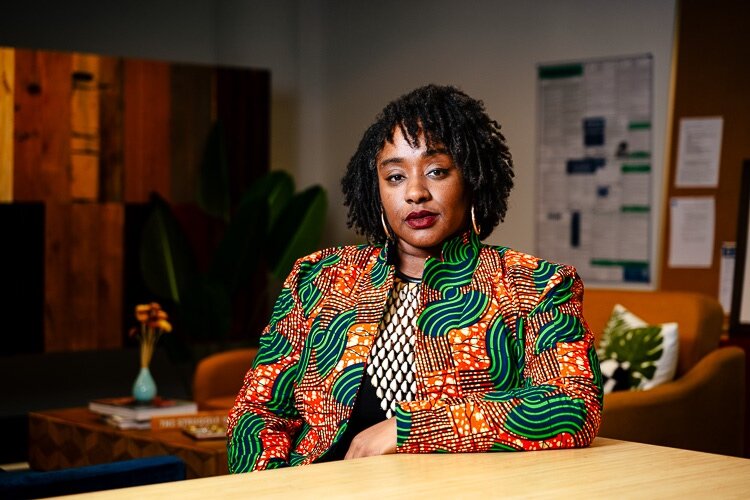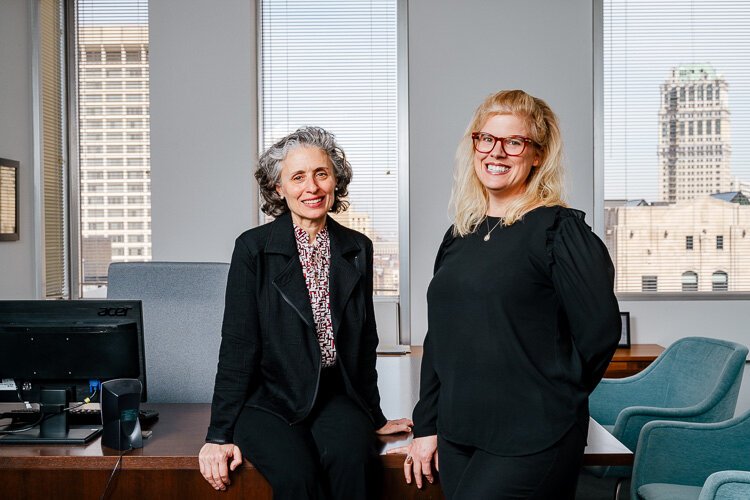Rest and recharge: Creative solutions to tackling nonprofit burnout
Burnout among nonprofit leaders is real. This story looks at approaches foundations and nonprofits are taking to create paths for executives to step aside, get some much-needed time away, and re-center themselves for the important but demanding work they do every day.
Burnout is a risk in any profession, but nonprofit leaders are especially prone to hitting a wall. Endless pressure to contend with ever-increasing needs and resources that don’t keep pace can tax anyone. Nonprofit executives tend to do the work they do because they are passionate about making a better world and relentless in pursuing their mission – exactly the kind of people who don’t take breaks easily.
But like everyone else, they are often balancing just as many demands outside of work as they are in their professional roles.
It all adds up to the very real risk of people leaving the nonprofit sector, either because their health has broken down or their spirit has. Nonprofits, and the organizations that fund them, are realizing that it takes more than summer Fridays or flexible work locations to protect against that risk. More and more they are creating paths for executives to step aside, get some much-needed time away, and rethink, revitalize and re-center themselves for the work.
One of the longest-standing programs of this type locally is the McGregor Fund’s Eugene Miller Fellowship. The fellowship is intended to provide nonprofit leaders who have had a funding relationship with the McGregor Fund to take a lengthy period away from their responsibilities: either as one four-month sabbatical or two eight-week periods over the course of the 18-month fellowship. They are to commit to staying completely away from their responsibilities during their sabbatical; otherwise, they can do whatever they choose with the time.
McGregor Fund President Kate Levin Markel says the fellowship is based on the fund’s desire to give back to nonprofit leaders in recognition of their deep commitment to solving social problems and helping people at their most vulnerable.
“These are very driven people,” says Levin Markel. “This funding was to afford them a chance to do things that might feel extravagant for them, but we also want to make sure our fellows know if that means not doing, that’s fine too.”
The events of 2020 – both the COVID-19 pandemic and reckoning with racial justice – had a significant influence on how McGregor approached the fellowship this year. The fund committed to addressing anti-racism in their work, which led to a rethinking of the type of organizations they have traditionally funded.
“We have a more expansive view of what the social safety net looks like,” says Heidi Alcock, director of grant development and communications for the McGregor Fund. In addition, COVID led to a pause in the fellowship for two years, so the 2023 cohort is not only more diverse but much larger – nine fellows versus three in recent years.
Organizations receive $50,000 from the Miller Fellowship to fund the sabbatical. Board members must approve the leader taking the time. To that end, an important part of the fellowship is succession planning – allowing other staff members to step forward and take on more of a leadership role. “The program was designed to have leaders step aside and let other leaders step up in the absence of their executive. It’s all really healthy for the agency,” says Alcock.
It was a conversation with Alcock that led Shamyle Dobbs, CEO of Michigan Community Resources, to begin thinking about how philanthropy can help address burnout and also how restrictive policies around who gets funding can perpetuate it. Dobbs had been struggling with burnout herself and approached Alcock about applying for the Miller Fellowship. She ultimately decided not to, but that email led to a several-hour conversation about the needs of a typically marginalized part of the nonprofit sector – smaller, community-based organizations led by people of color.
Dobbs was participating in a group called the Transforming Solidarity Collective, which is made up of five intermediary organizations that were led at the time by women of color: Michigan Nonprofit Association, Community Development Advocates of Detroit, Co.Act Detroit, Nonprofit Enterprise at Work, and Michigan Community Resources. They came together to work through struggles, challenges and opportunities they all faced and also to think deeply about their individual missions and values and how their programs aligned with each other.
From this alliance came the idea for the Rest and Liberation Initiative. “There was a combustion of all of this energy, not just around how do we think about sustainability for nonprofit leaders, but a real need to have an acute focus on BIPOC leaders, people of color and women of color,” says Dobbs.
Transforming Solidarity Collective is currently in the final stage of preparing a report benchmarking fellowships around the country that are intentionally aimed at BIPOC nonprofit leadership and smaller organizations. The report will make recommendations as to how something similar could be created in Detroit.
Chief among those recommendations is the creation of a sabbatical program for community-based organizations with budgets of under $500,000, led by people of color. It would fund a $30,000 to $50,000 sabbatical for leaders, but also provide $100,000 in unrestricted funds to their organizations to allow leaders to step aside knowing their organization would not suffer financially in their absence.
“One of the reasons leaders are not even thinking about stepping away from their work is that they are in this constant hamster wheel of survival,” says Dobbs. “We need to invest in all the pillars that make for resilient and sustainable organizations.”
Beyond the fellowship, the Rest and Liberation initiative is investigating ways nonprofits can rethink their own processes to address all the factors that lead to burnout. For example, MCR and Co.Act have both instituted “mental health days” for their staff members. The first Friday of every month, the agencies are closed so that employees can tend to their own needs. “The reality is there are cultural norms within the nonprofit ecosystem that create burnout and perpetuate the cycle of people coming in and out of the sector,“ says Dobbs.
CultureSource, an arts organization that supports Metro Detroit’s creative sector, has actively engaged in reducing burnout over the last few years, which has led to some major changes in the organization. For arts organizations in particular, which need audiences of one kind of another to do their work, the pandemic years were extremely challenging and left people burned out and questioning what comes next.
However, addressing those “paradoxical questions,” as CultureSource Executive Director Omari Rush calls them, can lead to a real and deep rethinking of how an organization approaches its work.
A lot of CultureSource’s conversations with its members have been around navigating complexity and adapting to a new reality without easy answers, and coping with the tension that can create. Taking time to really think though challenges, slowing down, and allowing individuals to take time for themselves are productive ways to cope with workplace stressors and burnout, Rush says, although going slower can seem counterproductive.
Flexibility is key now, he says, something Rush himself has had to adapt to as leader of his organization.
“Everything was open for discussion and debate in how we were working,” he says, noting that connection, reflection and building a network are essential in adapting to the new world. “It’s important at our core to be kind with each other and how we support each other.”
Leaders are learning that the kindness and flexibility they extend to others must be extended to themselves as well.
This entry is part of our Nonprofit Journal Project, an initiative inviting nonprofit leaders across Metro Detroit to contribute their thoughts via journal entries on how COVID-19, a heightened awareness of racial injustice and inequality, issues of climate change, and more are affecting their work–and how they are responding. This series is made possible with the generous support of our partners, the Michigan Nonprofit Association and Co.act Detroit.






